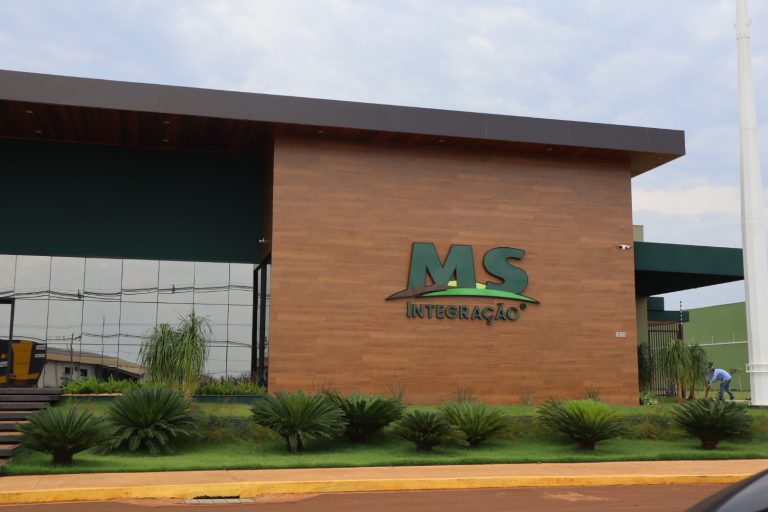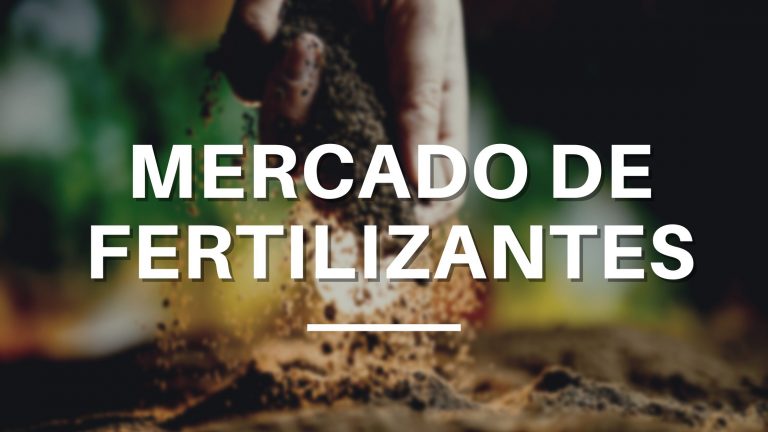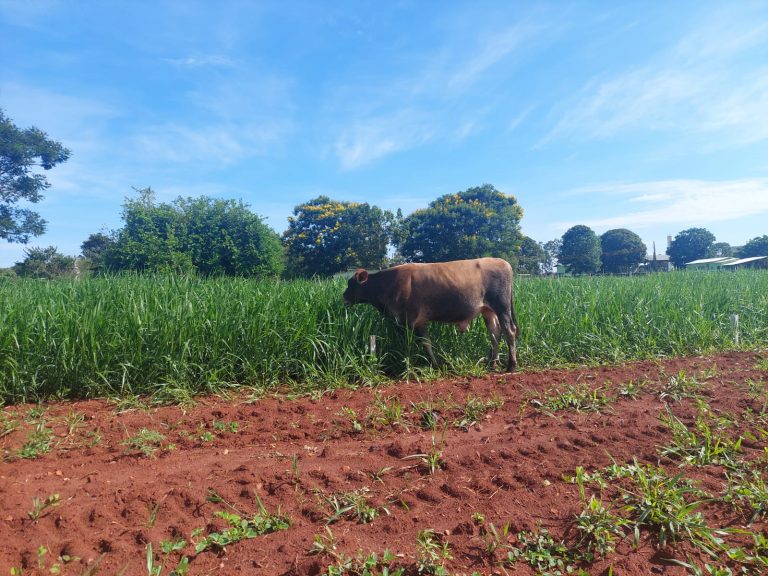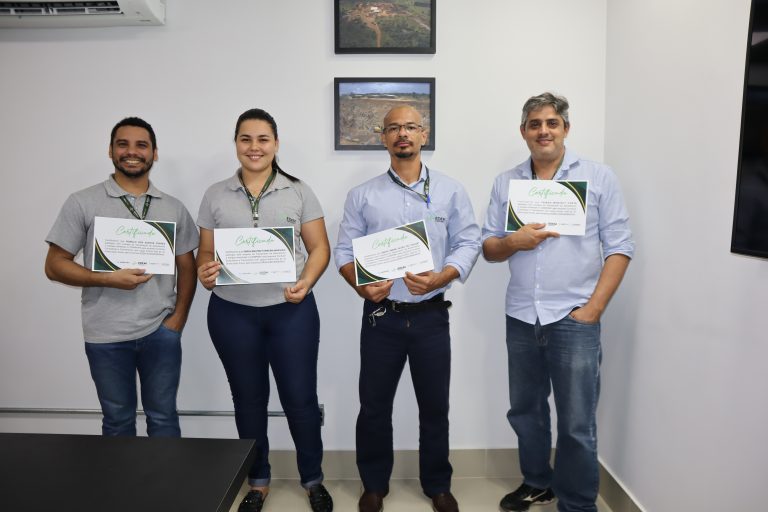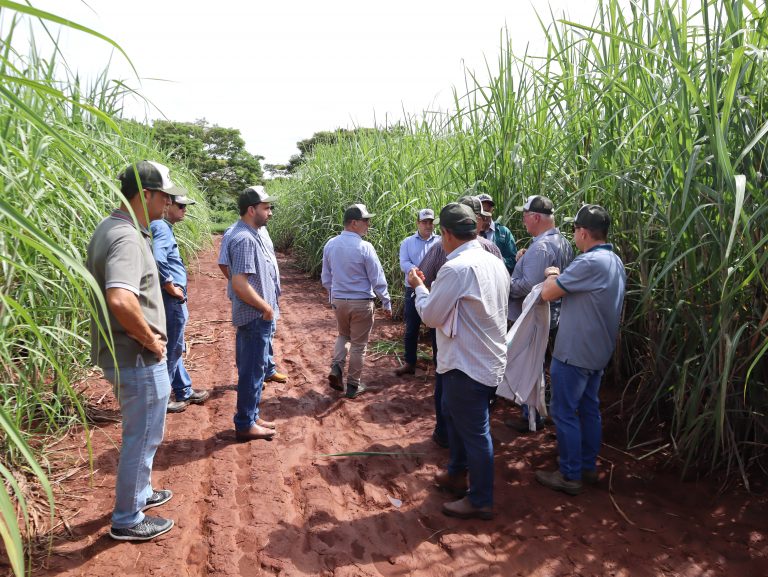Natural and sustainable fertilizer will be a great economic asset for agricultural activities in Goiás and Mato Grosso
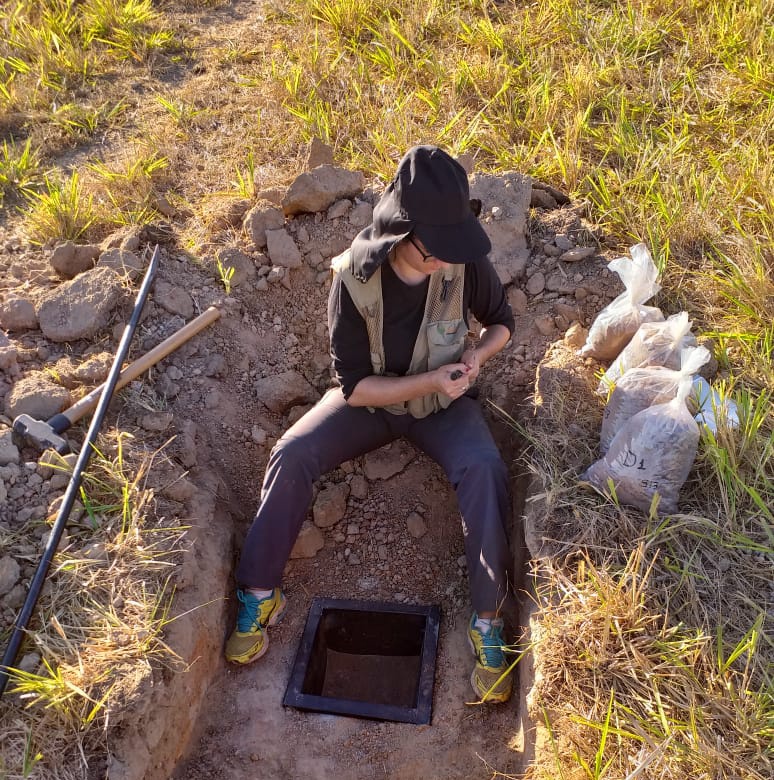

Montes Claros de Goiás, 270 km from Goiânia, will be the first municipality in the Center-West Region to explore a potassium deposit for the production of natural potassium fertilizer. The fertilizer, which can be used on a large scale, mainly in agriculture and livestock, will be obtained from the extraction and grinding of rocks rich in potassium.
The deposit was discovered by EDEM Agrominerais through various geological surveys carried out based on an aerogeophysical survey by the National Mining Agency (ANM) which pointed out, in the lands of Fazenda Carolina, in Montes Claros de Goiás, a soil profile with geological potential. After the discovery, EDEM Agrominerais set out to study the production and economic viability of the deposit. Then, the next step was the development of the project for the sustainable exploration of potash in the place. It is the KMC Project, with an initial production forecast of 80 thousand tons/year.
With a strategic location, the deposit has exceptional logistical and infrastructure conditions. It is on the banks of the federal highway BR-070, with a local offer of three-phase energy and easy access to several producing regions. The geologist and partner of EDEM Agrominerais, Luiz Vessani, explains that the reserves of potassium in the deposit, already evaluated and officially approved by the ANM, reach 207 million tons, with a high content of K2O (10%) and richness of essential macro and micronutrients plant growth and important for maintaining soil fertility. “It is also worth mentioning that the reserves have a high potential for growth, through new geological research”, he adds.

External dependency
Still, analyzing the numbers for 2019, the total production of potash in Brazil corresponded to 3.9% of the total sold. This means that the country imported 96.1% of this fertilizer, at an average price of US$ 588/ton. “Looking at the reality of Goiás in relation to external dependence on fertilizers, it must be said that the start of exploration of potassium deposits in Goiás is something extremely positive not only for the state, but for the Midwest as a whole, which consumes almost 40% of the potassium delivered to Brazil, thanks to the significant production of grains and sugarcane in the region. Consequently, the exploration of the deposit will be fundamental to reduce the costs for the products, mainly because we have an unfavorable exchange rate for importing inputs. Not to mention the facilitation it will bring to the logistical issue, which is not very favorable for our producers, as we are far from the ports”, says Luiz Vessani.
Geologist and partner at EDEM Agrominerais, Lincoln Gambier, adds that, in this scenario of dependence, the availability of a natural fertilizer close to consumer sources becomes relevant for the safety, economy and sustainability of regional agribusiness, in other words , “For our food security, an important strategy is to increase the national production of fertilizers. The deposit discovered by EDEM Agrominerais is an important economic asset for the agricultural activity of Goiás, notably for the Southwest and Northwest regions of the state, significant centers of production of soy, corn, tomatoes, eucalyptus and also the sugar and alcohol industry. The exploration of the fertilizer will also meet the demand of the Southeast and Northeast regions of Mato Grosso, a highlight in the national agricultural production”, explains the geologist.
Fertilizer market
Brazil
Total produced X Total consumed
Nitrogen
332 thousand tons 4.3 million tons
Phosphor
1.7 million tons 5.1 million tons
Potassium
239 thousand tons 6.1 million tons
*96.1% of the potassium we consumed in 2019 was imported
Consumption in Goiás
Nitrogen – 411 thousand tons
Phosphorus – 627 thousand tons
Potassium – 585 thousand tons
Source: ANDA – National Association for the Diffusion of Fertilizers
The extraction of potassium in Montes Claros
In Montes Claros, potassium is found in high concentration in rock form, being a 100% natural compound, without any type of artificial chemical enrichment. This makes possible a simple extraction process, in which only the grinding of the stone and its transport are necessary. There is no need to dam or wash inputs, that is, there is no need to consume water in production.
Approved licenses and certifications
The Environmental Installation License has already been issued by the Goiás State Secretariat for the Environment and Sustainable Development (Semad), the Final Research Report has been approved by the National Mining Agency (ANM) and the Usage Guide for the 80,000-ton mine /year is in the final approval phase also at the ANM. Test production will begin in March of next year and production on an industrial scale in November. While the forecast is that the product will start hitting the market in the first half of 2021.
Agronomic tests
Agronomic trials of potassium from Montes Claros were successfully completed at the Federal University of Goiás (UFG). The study included millet, soybean and bean crops, with largely favorable results, proving the possibility of using KMC as an alternative natural fertilizer.
Even so, new tests contracted with reputable consultants and local producers are in progress and already project optimistic perspectives for the use of KMC in soy, corn and sugar cane crops. However, an agronomic experiment carried out at Fazenda Carolina, in the municipality of Montes Claros de Goiás, 2019/20 harvest, included the planting of soybeans in already cultivated land, with encouraging harvest results.
Montes Claros Potassium Characteristics (KMC)
- It is free of chlorine and heavy metals.
- Does not harm the environment.
- Low sodium.
- Free of phytotoxics and salts that harm the plant, favoring root development.
- Easy to apply: it can be applied in bulk, all at once.
- It has gradual release and cumulative effect.
- It can be applied to different crops, such as soybeans, corn, sugarcane, coffee, fruit growing, rubber trees, eucalyptus plantations and, mainly, organic crops.
- Rich in micronutrients that favor soil biology.
- Promotes the increase of CTC (Cation Exchange Capacity), important for sandy soils.
Advantages of Potassium from Montes Claros (KMC)
Responsible for coordinating the KMC tests, the geologist from EDEM Agrominerais, Gustavo Guerra, explains that silicate agrominerals, such as KMC, in addition to providing nutrients that promote rejuvenation and the balance of soil fertility, can also provide silicon, highly beneficial element, whose application has shown an increase in productivity and resistance against pests, diseases and abiotic stresses.
In addition to silicon, a wide range of macro/micronutrients (calcium, magnesium, copper, manganese, cobalt, molybdenum and zinc) contribute to remineralize soil depleted over several years of cultivation, stimulate the biological activity of cultivated plants and increase the water holding capacity. In this way, life in the soil, favored by the use of natural potassium fertilizer, favors the increase of the root system of plants, in addition to fixing nitrogen via biological means.
Unlike KCl (potassium chloride) – the main chemical fertilizer used in agricultural production, highly soluble, leachable and responsible for the negative effects of soil salinization – potassium from Montes Claros has a slow and progressive release, capable of providing nutrients according to the needs of each phase of the crops, reducing losses by leaching. “The potassium from Montes Claros favors the formation of a residual 'bank of macronutrients' in the soil, which is gradually made available to the plants in successive cultivations of up to five years”, highlights Gustavo Guerra.
Environmental Advantages
The use of natural fertilizers is part of a technological evolution of Brazilian agriculture – the so-called green agriculture. So much so that studies for the development of these new materials and inputs have had the intense support of EMBRAPA and ANM. The geologist and partner at EDEM Agrominerais, Luiz Vessani, points out that, for Brazil to continue to be the breadbasket of the world, it is necessary that production be seen from the perspective of environmental sustainability. “In order to reduce the pressure to open new lands for agricultural productivity, it is necessary to recover the soils degraded by the intense traditional agricultural activity. In this sense, the agricultural and geological sciences need to walk together, in order to seek strategic solutions that leverage productivity and, at the same time, take care of the environment, through studies and development of new agromineral products”, says Luiz Vessani.
In this context of sustainability, geologist Gustavo Guerra emphasizes the environmental advantages of potassium from Montes Claros. According to him, because it is a low-impact mining activity, KMC production does not generate solid waste, does not generate contaminants and does not use water. Proximity to the producer is another positive point, as it means reducing CO2 emissions related to transport. The geologist also says that, because the mining area is located in pasture, production will not alter the region's native vegetation. Moving on to the properties of the fertilizer, Gustavo Guerra lists the differentials. “KMC is low in sodium and free of chlorine, two elements that can negatively impact soil microbiota.”
Geologist Lincoln Gambier adds, however, other positive impacts on the environment. “Life in the soil, favored by the use of natural potassium fertilizer, causes an increase in the root system of plants, in addition to fixing nitrogen biologically. The sequestration of carbon from the atmosphere by microorganisms in the soil, associated with the increase in organic matter, is a powerful ally in reducing carbon in the atmosphere.”, he concludes.
Sustainability
- Low impact mining
- Production does not generate solid waste, contaminants and does not use water.
- Proximity to the producer reduces CO2 emissions in transport.
- Mining area located in pasture, without alteration of native vegetation.
- Fertilizer with low sodium content and free of chlorine, preventing soil salinization.
- Presence of fundamental macro/micronutrients for soil fertility.
Potassium in Agriculture
Potassium is responsible for ionic balance in plant cells. It has no structural function nor does it appear in the composition (it is not exported to the grains), but it is the catalyst for a large number of reactions. Efficient carbohydrate and protein synthesis depends on potassium, which directly affects photosynthesis.
Brazil plays an important role in world food security, but arable land is limited. “The efficient use of fertilizers that help increase agricultural productivity is fundamental when we look at the characteristics of the Brazilian soil, which is naturally poor, due to the high natural leaching, which occurs mainly in the Cerrado, as well as the exhaustion of nutrients by intensive cultivation. In addition, there is great environmental pressure in the country regarding new arable land”, says Luiz Vessani.
Potassium in organic farming
Natural mineral potassium (such as KMC) is essential for certified organic agriculture, which does not allow the use of chemical forms or highly soluble forms of fertilizers to supply nutrients. In this type of cultivation, only ground natural rocks are allowed. In this sense, the participation of this segment of agriculture has been growing in the market, with organic sugar as an exponent.



